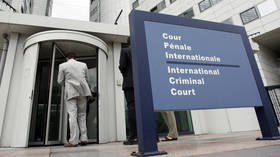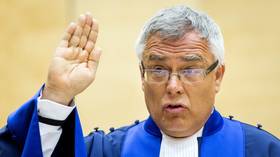Russia puts another ICC judge on wanted list

The Russian government has placed a judge with the International Criminal Court (ICC) on its list of wanted persons, after launching criminal probes into several other officials at the organization.
Russia’s Interior Ministry updated its database on Wednesday, adding ICC judge Sergio Gerardo Ugalde Godinez to the wanted list “in accordance with an article of the Russian Criminal Code.” The ministry has offered no other details about the case against Godinez, a Costa Rican national.
In March, the ICC issued arrest warrants for Russian President Vladimir Putin and Commissioner for Children’s Rights Maria Lvova-Belova for allegedly overseeing “unlawful deportations” of Ukrainian children to Russia. The warrant accuses both of bearing individual and command responsibility for the alleged offense under the ICC’s establishing treaty, the Rome Statute.
The Kremlin rejected the ICC’s warrant as invalid, stressing an absence of criminal liability and the court’s lack of jurisdiction, and responded by opening criminal investigations into one ICC prosecutor and several judges, among them Godinez. In September, ICC President Piotr Hofmanski was also declared wanted.
While Russia signed the Rome Statute in 2000, it never ratified the agreement and formally refused to sign it in 2016 after the court issued a declaration that Crimea’s 2014 accession to Russia – the result of a democratic referendum – constituted an “occupation.” Moscow thus does not recognize the court or its jurisdiction.













